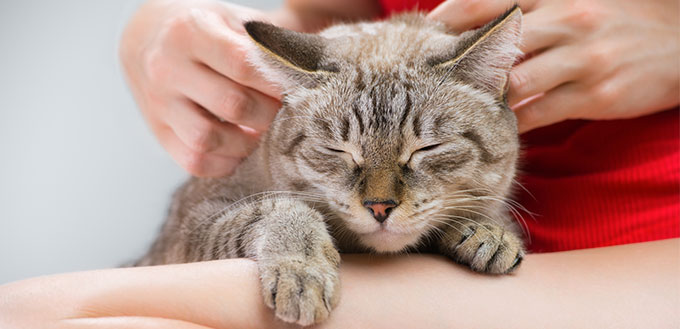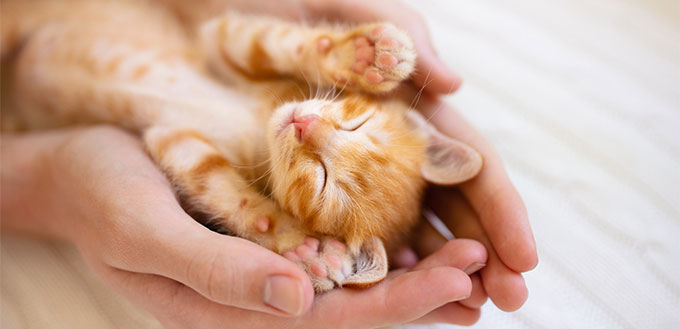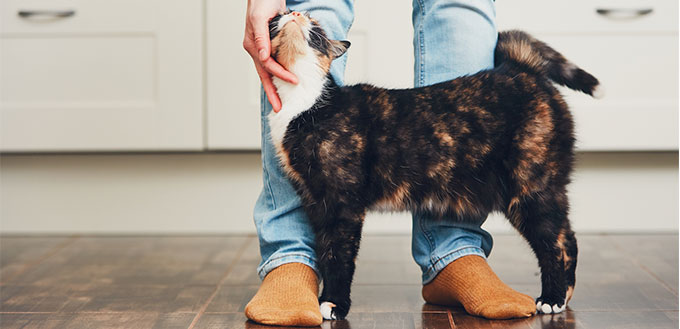When it comes to emotional support animals, people often think of adorable dogs. However, these are not only limited to doggies. Even cats, with all their peculiar quirks and aloof nature, can serve as great emotional support animals (ESA).
An emotional support cat is an effective method for easing depression and anxiety. Cats used as ESAs have also proven to be exceptional in aiding humans’ mental and emotional conditions. Learn more about feline ESAs in this article.
What Does an Emotional Support Animal Really Do?
Emotional support animals provide comfort to their human companions. They are more than just simple house pets; they are there to help people suffering from mental health complications to deal normally with daily life.
Emotional support cats are different from a service animal since ESAs do not undergo training for performing certain tasks like assisting blind people to cross busy streets, fetch water or medicine and forewarn other people when its owner is distressed.
Can cats be service animals too? Sorry to say, the service cat is but a dream. Only dogs, capuchin monkeys and miniature horses were recognized to be capable service animals. Cats though are still helpful since they make for excellent companions and owners can register them as ESAs.
What are the Benefits of Having Emotional Support Cats?
Here are some of the benefits when you acquire a cat as an ESA.
- Cats as ESAs are covered by the benefits the Fair Housing Act and Air Carrier Access Act bring
The Fair Housing Act (FHA) allows individuals to live with their choice emotional support feline even in apartments and condominiums where pets are not allowed. This law serves to protect owners of ESAs from unfair treatment by homeowner associations and landlords.
For example, if you were rejected by a landlord because you have an emotional support animal, you can get in touch with HUD and file a complaint against the person.
Meanwhile, the Air Carrier Access Act lets you travel together with your ESA. There is no need for additional fees or tickets when you travel with your emotional support feline. Get in touch with the airline 48 hours before flying so they are aware of your situation.
- Emotional support cats ease anxiety and depression
People stricken with anxiety and depression often have trouble coping with everyday life. Emotional support cats serve to help their owners hack their everyday routines. The gentleness of cats and their fascinating quirks make for an instant mood lift that is why they make such fantastic emotional support animals.
- They help with PSTD or post-traumatic stress disorder
Most victims of abuse and violent situations end up with PSTD and ESAs have helped immensely in their recovery. Having a cat for emotional assistance makes dealing with this mental illness easier for most sufferers and often leads to an improvement in mental health.
- Reduces the level of stress
Regularly being around emotional support cats, petting them and playing with them can help reduce stress levels. These cats make people relaxed and have good moods. With a reduction in stress levels, emotional support cats can also help lower high blood pressure, cholesterol and triglycerides. Thus, having one not only means you get to have improved mental health, your heart will be healthier as well.
How Do You Qualify to Own an Emotional Support Cat?
You can apply for emotional support cats if you are suffering from the following mental health conditions:
- General Anxiety Disorder
- Depression
- Post-Traumatic Stress Disorder
- Bipolar Disorder
- Panic Disorder
- Depression
- Obsessive-Compulsive Disorder
- Post-Partum Depression
- Phobias
- Fears
- Seasonal Affective Disorder
ESA Cat Requirements
Here are some of the steps you have to take on how to get an emotional support cat.
- Get yourself a cat. You can get in touch with a reputable breeder, the Humane Society or an ASPCA branch near you.
- The animal you choose should be capable of giving you extensive emotional assistance.
- Make sure to get an ESA letter from your therapist.
- If you are hunting for a new home or want to travel with your ESA along, present your ESA letter to the landlord or the airline.
Best Emotional Support Cat Breeds
Here are some of the most well-praised ESA Cat breeds you should be familiar with.
- Ragdoll
The Ragdoll is one furry feline which acquired its name from their rather adorable and trusting way to go limp and let go when picked up. Ragdolls are also one of the most affectionate cat breeds. This is an excellent cat for people suffering from mood swings and PSTD. They will follow you around the house and always aim for your companionship.
These well-natured, beautiful and graceful kitties can also be trained to do certain activities like playing fetch and rolling over. They resemble dogs in a sense that they were nicknamed “puppy cats” as well.
- Maine Coon
The gentle giant is mellow, sweet, and like the Ragdoll, is also fond of following their beloved owners. Maine Coons are singled out for their height, weight and masses of luscious, fluffy fur. Like Ragdolls, they also have keen dog-like abilities due to their social smarts. They do not have any problems mingling with strangers. This is the best breed for people stricken with social anxiety since it allows them to slowly open up and embrace their real selves.
- Siamese
Siamese cats are known to be one of the loudest breeds; they are lovely, outspoken creatures who will always express their needs. Siamese cats are not one and the same; they have different personalities but they are known to be playful and tremendously devoted to their owners. Siamese cats can also be trained easily and are one of the sweetest cat breeds as well.
- Bengal
Bengal cats are very smart and playful fur babies. Their appearance resembles a tiny version of bigger wildcats and their markings provide them a very unique yet elegant look. They are very social and unlike most cat breeds, they need lots of attention in order to avoid getting bored. If you want loads of affection from your ESA cat, then this breed is for you.
- Sphynx
The Sphynx might look strange and kind of on the wacky side. Some even say these adorable creatures look like dressed chickens but the affection they provide their owners are unparalleled. These cats are inherently smart, very curious and like the Bengal, want tons of affection from their owners, too. This is also a great cat for people suffering from respiratory allergies.
- Persian
Quiet, composed, elegant and loving—these are the traits that have acquired Persian cats lots of fans. They have unique faces and graceful waves of beautiful feline hair. Often reserved and satisfied to settle on their favorite spots, Persians are ideal for ESA owners living in small spaces like apartments and tinier condominium units. Due to overbreeding, Persians are prone to health issues but if you don’t mind the extra responsibility and want a breed that has a peaceful personality, then this charming furball is for you.
ESA Cat Considerations
We have discussed excellent ESA cat breed recommendations and now we go into some essentials before you register for one.
- Feral cats are not really recommended as ESAs
While helping feral felines is beneficial, they are not really raised to be ESA types. Ferals are often wary or afraid of humans, have a wild nature and are anxious. Feral cats though can be tamed but in order to accomplish this, the task should be done by a professional. This endeavor will also take time and patience to be a success.
- For a better bond, get a kitten
Developing a close bond with your ESA cat is better done when the cat is young. Thus, most recommend having an ESA kitten because the idea here is to socialize the cat well. At this stage, you will be assured that the cat will grow up to have less inhibitions and fears around humans.
- Have the cat spayed or neutered
Cats who were not spayed or neutered do not really make excellent ESA felines. For one, males who are unaltered are more aggressive, heed more to the call of the wild and have a propensity for marking their territory with their urine. Unaltered females will be frequently in heat and will make attempts to go outside and breed. These events might lead to stress, and it defeats the purpose of having an animal that supports you emotionally. ESA cats should never be a stress trigger for you.
- Raise an indoor-only cat
Altered, indoor cats usually do not have any problems socializing and bonding with people since they rarely experience the call of their natural instincts. Having them indoors also means they are safe from injury and diseases.
So, can cats be emotional support animals? Yes. Many have agreed that they are wonderful ESAs, too. If you are not too keen on dogs, having an ESA cat around provides love and benefits that will immensely help with your mental health.
Sources:
- The Fair Housing Act and Assistance Animals, The Humane Society
- Assistance Animals, The MSPCA–Angell










